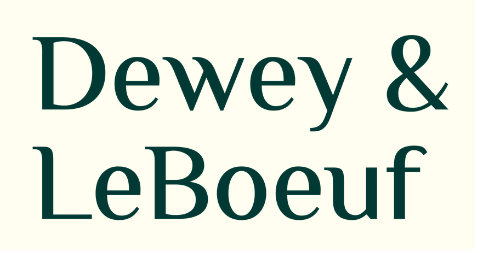In a significant move to boost economic activities and facilitate secured financial transactions, the Cabinet of Bangladesh has approved the draft of the Secured Transactions (Movable Property) Act. This groundbreaking legislation opens avenues for utilizing movable assets, ranging from vehicles and machinery to furniture and electronic appliances, as collateral. Dewey Leboeuf, with its commitment to providing insightful legal analysis, delves into the intricacies of this Act, shedding light on its implications for businesses and the financial sector.
I. Introduction
Bangladesh’s economic landscape is witnessing a transformative shift with the introduction of the Secured Transactions (Movable Property) Act. This forward-thinking legislation aims to enhance access to finance for businesses by allowing movable assets to be used as collateral. As Dewey Leboeuf navigates the legal dimensions of this Act, we explore its implications, benefits, and the framework it establishes for secured financial transactions.
II. Overview of the Secured Transactions (Movable Property) Act
A. Scope of Movable Assets
The Act expands the scope of collateral beyond traditional immovable property, recognizing a diverse range of movable assets as acceptable security. These assets include:
- Vehicles:
The Act enables businesses to leverage their vehicle assets as collateral, unlocking new opportunities for financing and capital acquisition. - Machinery:
Businesses involved in manufacturing and industrial activities can use their machinery as security, providing a valuable avenue for securing loans and credit. - Furniture and Electronic Appliances:
Commercial entities, including offices and retail establishments, can now utilize furniture and electronic appliances as movable collateral. - Software:
In an era driven by technology, the Act acknowledges the value of software as a movable asset, allowing businesses in the IT sector to use it as collateral. - Agricultural Products:
Farmers and agricultural businesses can pledge their produce as collateral, fostering growth in the agriculture sector. - Minerals:
Companies engaged in mining and extraction of minerals can use their mineral resources as security for financial transactions. - Processed Fish and Livestock:
The Act extends its coverage to processed fish and livestock, providing a significant boost to the fisheries and livestock industries.
B. Implications for Businesses
- Enhanced Access to Finance:
The inclusion of movable assets broadens the pool of collateral, making it easier for businesses to secure financing. This is particularly beneficial for small and medium enterprises (SMEs) that may have limited immovable assets. - Diversification of Collateral:
Businesses now have the flexibility to use a variety of assets as collateral, allowing for a more diversified approach to securing loans. This reduces dependency on traditional forms of collateral. - Facilitation of Secured Transactions:
The Act streamlines the process of securing transactions by recognizing movable assets. This not only expedites the lending process but also provides a legal framework for such transactions.
III. Legal Framework and Compliance
A. Registration and Perfection of Security Interest
- Central Collateral Registry:
The Act establishes a Central Collateral Registry, serving as a centralized platform for the registration and management of security interests in movable assets. This registry enhances transparency and provides a comprehensive record of security interests. - Notice to Interested Parties:
Parties seeking to register security interests must provide notice to interested parties, ensuring transparency and allowing for the resolution of any potential disputes. - Priority of Security Interests:
The Act establishes rules for determining the priority of security interests, offering clarity on the rights of secured parties in case of competing claims.
B. Legal Protections for Secured Creditors
- Enforcement Mechanisms:
Secured creditors benefit from clear enforcement mechanisms outlined in the Act. In the event of default, the Act provides a framework for the enforcement of security interests. - Protection of Third-Party Buyers:
The Act includes provisions to protect the rights of third-party buyers who acquire movable assets in good faith, ensuring a balance between the interests of secured creditors and innocent purchasers. - Remedies for Secured Creditors:
Secured creditors have access to various remedies, including the right to take possession of the collateral, dispose of the collateral, or seek a court order for the enforcement of security interests.

IV. Challenges and Considerations
A. Implementation Challenges
- Awareness and Education:
Successful implementation of the Act requires widespread awareness and education. Dewey Leboeuf emphasizes the need for comprehensive educational initiatives to familiarize businesses, lenders, and the legal community with the provisions of the Act. - Operational Infrastructure:
The effective functioning of the Central Collateral Registry necessitates robust operational infrastructure. Investment in technology and resources is crucial to ensure the registry’s efficiency and accessibility.
B. Legal Interpretation and Dispute Resolution
- Legal Clarity:
Clarity in legal provisions is essential to avoid ambiguity and legal disputes. Dewey Leboeuf underscores the importance of precise language and unambiguous definitions in the Act. - Dispute Resolution Mechanisms: The Act should incorporate effective dispute resolution mechanisms to address conflicts arising from secured transactions. Timely and efficient resolution contributes to the overall success of the Act.
The approval of the Secured Transactions (Movable Property) Act marks a significant milestone in Bangladesh’s legal and economic landscape. Dewey Leboeuf recognizes the transformative potential of this legislation, providing businesses with enhanced financial flexibility and opportunities for growth. As the Act moves from approval to implementation, the law firm emphasizes the importance of proactive measures, including education, infrastructure development, and legal clarity, to ensure the Act’s successful integration into Bangladesh’s economic ecosystem. With a commitment to excellence, Dewey Leboeuf stands ready to navigate the complexities of this groundbreaking legislation, contributing to the prosperity and resilience of businesses in Bangladesh.
E-mail: info@deweyleboeuf.com
Phone: +971 58 690 9684
Address: Office M 1003, Al Shmookh Business Center, UAQ FTZ, Umm Al Quwain, UAE
